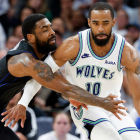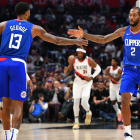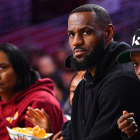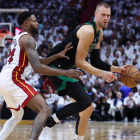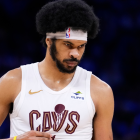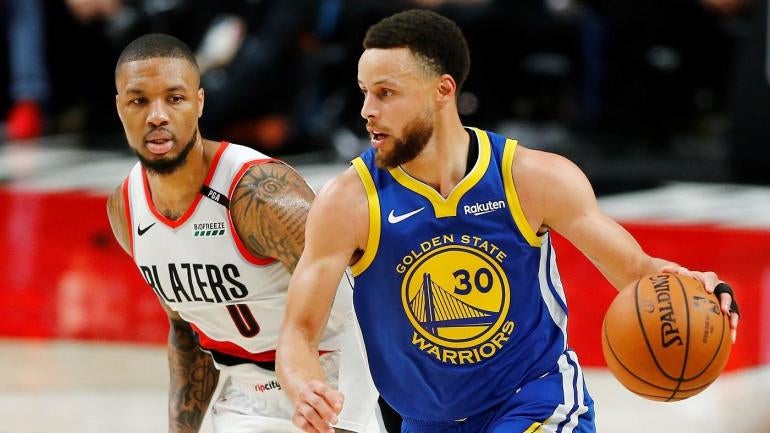
The Golden State Warriors are off to a far worse start than even their 2-3 record would indicate. With the NBA's worst offensive rating and second-worst defensive rating, they are, quite possibly, the worst team in the league right now.
The Warriors' two wins came against the Bulls and Pistons, also two of the worst teams in the league, and even those required a last-second Damion Lee 3-pointer in Chicago and Blake Griffin missing the second half in Detroit. Against their three playoff-caliber opponents? The Warriors have lost by a combined 90 points.
It's hard to imagine, under any circumstances, a team featuring Stephen Curry having the worst-ranked offense in the league, but here we are, with Curry being reintroduced to the harsh realities of trying to find adequate space and clean shots without all-time great shooters and scorers, not to mention elite passers, surrounding him.
Through five games, Curry is averaging 26.4 points, 6.6 assists and 4.6 rebounds, which look like All-NBA numbers. But they are deceiving. A decent chunk of the points have come in the desperate sectors of games that have long been decided. He's shooting 32 percent from three, and the 3s he has made have come in streaks. He's missing a bevy of shots for large parts of games, and the nostalgia of Curry's MVP seasons when he regularly took and made kamikaze shots is proving, so far, to be a distant memory.
Damian Lillard, whose Blazers thrashed Curry's Warriors in Golden State's home opener, and no stranger to taking and making shots that stretch the limits of what we previously thought possible, offered an interesting breakdown of Curry's dilemma with a team needs him to be more aggressive than ever, but also lacks the margin for error that once provided Curry relative impunity in launching those shots.
"I think right now, with the injuries that the Warriors have been dealing with and Steph playing with a younger team right now, he's seeing that it's tough to get those quality looks right now," Lillard said while appearing on Warriors Pregame Live.
"It's different than what it's looked like over the last four or five years for him. He's trying to get quality looks and get a clean look, so he can make a good [shot]," Lillard continued. "You don't really have that luxury to take one from that deep just to be taking it like in the past he might have, and I'm the same, getting a lot of attention from defenses. I'm trying to see the ball go in, so I'm not going to fire one just because. I've got to get it going first."
To Lillard's point, it's not just that the Warriors have no margin for error as a team, it's that Curry, who suddenly doesn't know when or where his next good look is going to show up, is having to be more judicious as well. Shooters rely on rhythm. In the past, Curry, despite the attention he garners, could depend on a lot of clean looks to establish his rhythm given the attention Kevin Durant and Klay Thompson drew and the IQ of the passers in sync with his movements and programmed to find him on relocations and in his favorite spots.
Put another way, he could afford to fire away knowing he, and his team, could easily withstand a few misses. For a shooter, a level of freedom like that is a luxury. You are shooting, and playing, weightless. No fear of consequences. On this team, if Curry takes five or six bad shots -- or what would be considered bad shots for most human beings -- to start a game, he could be in funk and the Warriors could be in a 20-point hole before he blinks.
At the same time, Curry waiting too long to get aggressive could leave the Warriors in the same hole, which is precisely what has happened to start the year. It's a fine line. And a real dilemma. Lillard offers some interesting insight as to what Curry is trying to negotiate, and he's right: Things are a lot tougher on Curry than they have been on some time, and he, and the Warriors, have to figure something out quickly if they don't want to endure a second consecutive lost season.
















